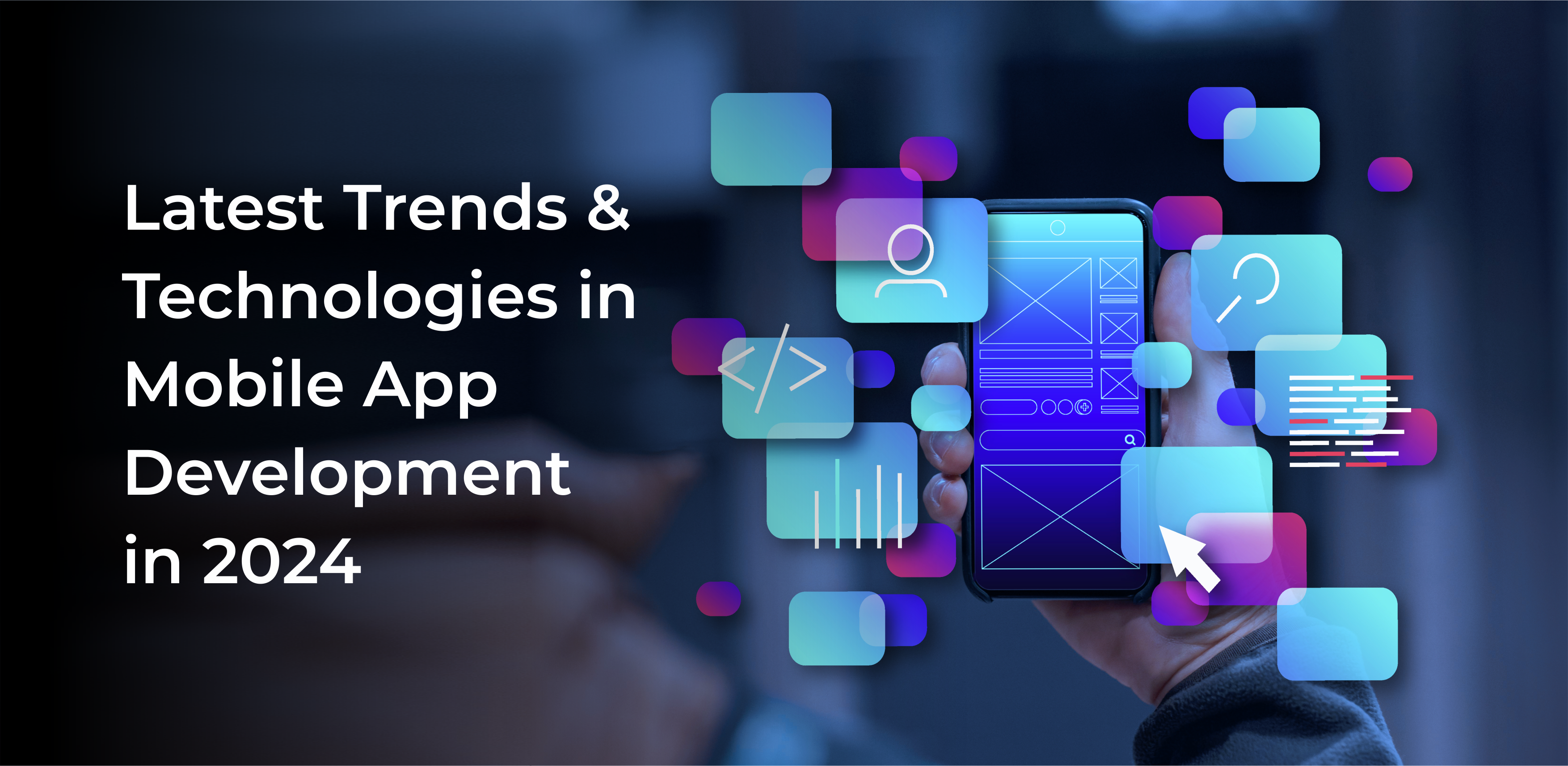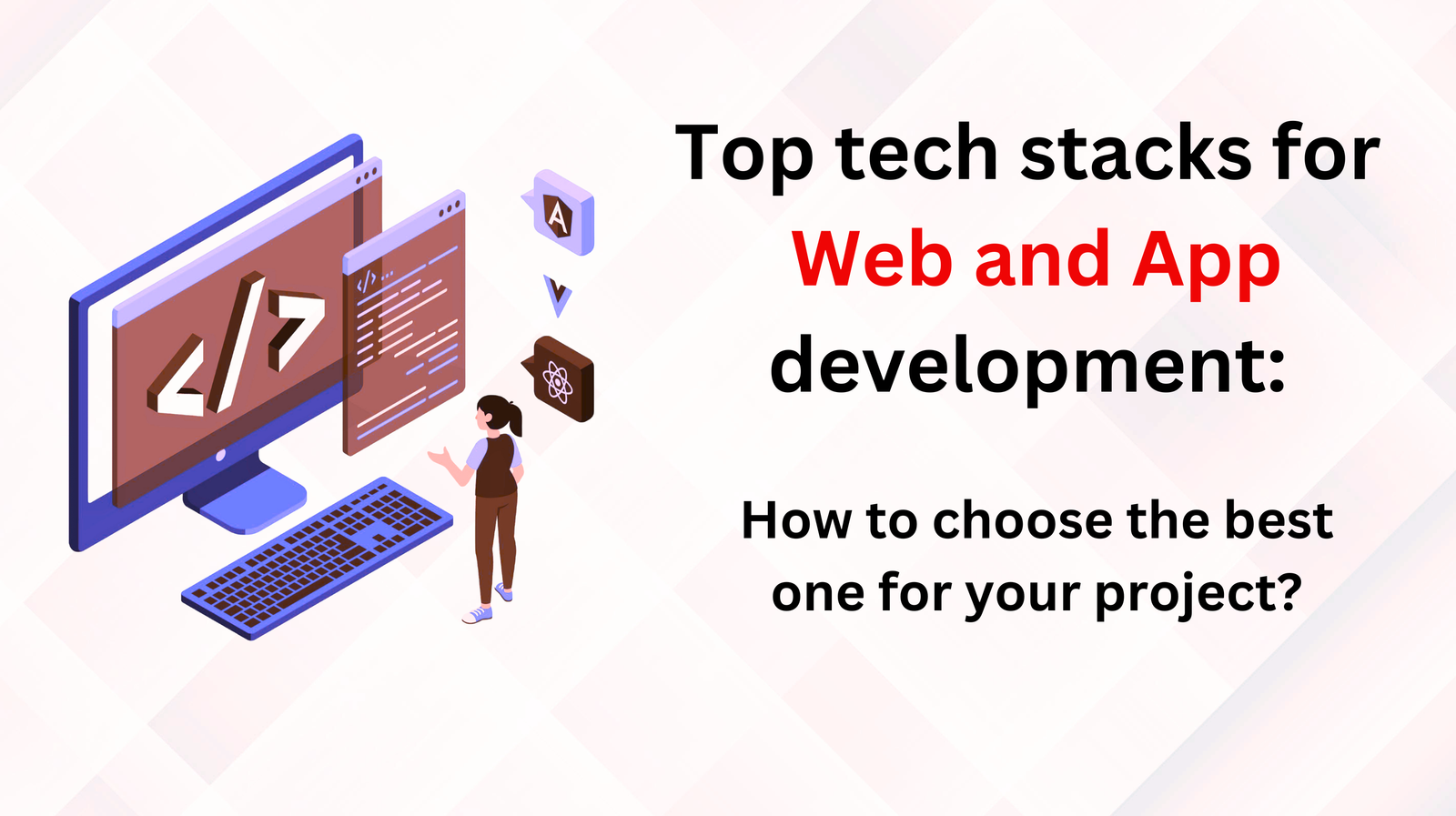Mobile apps are now an integral part of our everyday lives in the digital age, influencing not just our communication and shopping habits but also our health management. With over 7.1 billion mobile users worldwide and the mobile app market projected to reach $935 billion by 2024, the importance of staying ahead in mobile app development has never been greater. As we navigate through 2024, several transformative trends and technologies in mobile app development are emerging, poised to revolutionize the industry and redefine user experiences. In this blog, we explore the top trends and technologies shaping the future of mobile apps, backed by influential insights and real-world examples that highlight their impact.
The rollout of 5G is set to revolutionize mobile app development, offering unprecedented speed and connectivity. With data transfer rates up to 100 times faster than 4G, 5G enables more responsive and immersive experiences. For instance, augmented reality (AR) and virtual reality (VR) applications will become more seamless, enhancing gaming, shopping, and educational apps. According to Statista, the number of 5G subscriptions worldwide is expected to reach 3.6 billion by 2025.
AI and ML continue to be integral in personalizing user experiences. From chatbots and virtual assistants to recommendation engines, AI-driven apps are becoming more intelligent and intuitive. In 2024, we can expect more advanced predictive analytics, enhancing user engagement by anticipating needs and preferences. For example, AI can analyze user behavior patterns to offer personalized content and product suggestions, increasing app retention rates.
IoT integration is transforming how apps interact with the physical world. Smart home devices, wearable technology, and connected cars are just a few examples where IoT is making an impact. In 2024, mobile apps will increasingly serve as central hubs for controlling and monitoring IoT devices. The global IoT market is projected to grow to $1.6 trillion by 2025, according to Mordor Intelligence, highlighting the vast potential for IoT-enabled apps.
The on-demand economy is booming, with apps like Uber, Airbnb, and DoorDash setting the standard. In 2024, on-demand apps will continue to expand into new sectors, including healthcare, fitness, and professional services. Users crave convenience and efficiency, and on-demand apps deliver by providing services at their fingertips. Statista reports that the global on-demand app market is expected to reach $335 billion by 2025.
Security is becoming more and more important as mobile apps are used more frequently. In 2024, developers will prioritize advanced security features to protect user data and privacy. Biometric authentication, end-to-end encryption, and AI-driven threat detection are some of the measures being implemented. A report by Juniper Research predicts that global spending on mobile app security will surpass $17 billion by 2025, emphasizing the importance of robust security in app development.
Flutter, Google’s open-source UI toolkit, is increasingly popular for creating natively compiled mobile, web, and desktop applications from a single codebase. Its fast development cycle and expressive UI capabilities make it a favorite among developers. Companies like Alibaba and BMW have successfully used Flutter to create visually appealing and high-performance apps.
Apple’s SwiftUI is transforming iOS app development with its declarative syntax and powerful design tools. SwiftUI allows developers to build complex interfaces with less code and provides real-time previews. Its integration with Xcode makes it easier to design and test apps. SwiftUI is expected to play a significant role in the future of iOS development, with more apps leveraging its capabilities for seamless performance and aesthetics.
Kotlin Multiplatform enables developers to use a single codebase for both Android and iOS apps, streamlining the development process. By sharing code across platforms, developers can reduce time and effort while maintaining native performance. Major companies like Netflix and Pinterest are adopting Kotlin Multiplatform to enhance their app development efficiency and consistency.
Developers can use JavaScript and React to create cross-platform apps with the help of React Native, a popular framework created by Facebook. Its ability to deliver near-native performance with a single codebase makes it a preferred choice for many. React Native’s large community and extensive libraries provide robust support and resources. Companies like Instagram and Airbnb have successfully utilized React Native to build scalable and performant apps.
Blockchain is not just for cryptocurrencies; it’s revolutionizing mobile app development by offering enhanced security, transparency, and traceability. Apps in finance, healthcare, and supply chain management are leveraging blockchain to ensure data integrity and secure transactions. According to MarketsandMarkets, the blockchain market size is expected to grow to $39.7 billion by 2025, highlighting its increasing relevance in app development.
In conclusion, 2024 is set to be an exciting year for mobile app development, driven by advancements in 5G, AI, IoT, and enhanced security measures. Technologies like Flutter, SwiftUI, and Kotlin Multiplatform are empowering developers to create more efficient, high-performance apps. Staying up-to-date on these trends and technologies will be crucial for businesses aiming to deliver innovative and engaging mobile experiences.
At Excite Template, we are at the forefront of these advancements, offering state-of-the-art mobile app development services that harness the power of the latest trends and technologies in mobile app development. Our team of skilled developers and designers is dedicated to creating custom-made mobile applications that not only meet but exceed your business objectives. Whether you need an exclusive e-commerce app, a seamless IoT-enabled solution, or a secure blockchain-based application, we have the expertise to bring your vision to life. Partner with Excite Template to elevate your mobile presence and drive unparalleled engagement and growth in 2024 and beyond.
Let’s learn about latest trends and technologies in Mobile app development
Top Trends in Mobile App Development
1. 5G Technology
The rollout of 5G is set to revolutionize mobile app development, offering unprecedented speed and connectivity. With data transfer rates up to 100 times faster than 4G, 5G enables more responsive and immersive experiences. For instance, augmented reality (AR) and virtual reality (VR) applications will become more seamless, enhancing gaming, shopping, and educational apps. According to Statista, the number of 5G subscriptions worldwide is expected to reach 3.6 billion by 2025.
2. AI & ML- Artificial Intelligence and Machine Learning
AI and ML continue to be integral in personalizing user experiences. From chatbots and virtual assistants to recommendation engines, AI-driven apps are becoming more intelligent and intuitive. In 2024, we can expect more advanced predictive analytics, enhancing user engagement by anticipating needs and preferences. For example, AI can analyze user behavior patterns to offer personalized content and product suggestions, increasing app retention rates.
3. Internet of Things (IoT) Integration
IoT integration is transforming how apps interact with the physical world. Smart home devices, wearable technology, and connected cars are just a few examples where IoT is making an impact. In 2024, mobile apps will increasingly serve as central hubs for controlling and monitoring IoT devices. The global IoT market is projected to grow to $1.6 trillion by 2025, according to Mordor Intelligence, highlighting the vast potential for IoT-enabled apps.
4. On-Demand Apps
The on-demand economy is booming, with apps like Uber, Airbnb, and DoorDash setting the standard. In 2024, on-demand apps will continue to expand into new sectors, including healthcare, fitness, and professional services. Users crave convenience and efficiency, and on-demand apps deliver by providing services at their fingertips. Statista reports that the global on-demand app market is expected to reach $335 billion by 2025.
5. Enhanced Security Measures
Security is becoming more and more important as mobile apps are used more frequently. In 2024, developers will prioritize advanced security features to protect user data and privacy. Biometric authentication, end-to-end encryption, and AI-driven threat detection are some of the measures being implemented. A report by Juniper Research predicts that global spending on mobile app security will surpass $17 billion by 2025, emphasizing the importance of robust security in app development.
Latest Technologies in Mobile App Development
1. Flutter
Flutter, Google’s open-source UI toolkit, is increasingly popular for creating natively compiled mobile, web, and desktop applications from a single codebase. Its fast development cycle and expressive UI capabilities make it a favorite among developers. Companies like Alibaba and BMW have successfully used Flutter to create visually appealing and high-performance apps.
2. SwiftUI
Apple’s SwiftUI is transforming iOS app development with its declarative syntax and powerful design tools. SwiftUI allows developers to build complex interfaces with less code and provides real-time previews. Its integration with Xcode makes it easier to design and test apps. SwiftUI is expected to play a significant role in the future of iOS development, with more apps leveraging its capabilities for seamless performance and aesthetics.
3. Kotlin Multiplatform
Kotlin Multiplatform enables developers to use a single codebase for both Android and iOS apps, streamlining the development process. By sharing code across platforms, developers can reduce time and effort while maintaining native performance. Major companies like Netflix and Pinterest are adopting Kotlin Multiplatform to enhance their app development efficiency and consistency.
4. React Native
Developers can use JavaScript and React to create cross-platform apps with the help of React Native, a popular framework created by Facebook. Its ability to deliver near-native performance with a single codebase makes it a preferred choice for many. React Native’s large community and extensive libraries provide robust support and resources. Companies like Instagram and Airbnb have successfully utilized React Native to build scalable and performant apps.
5. Blockchain Technology
Blockchain is not just for cryptocurrencies; it’s revolutionizing mobile app development by offering enhanced security, transparency, and traceability. Apps in finance, healthcare, and supply chain management are leveraging blockchain to ensure data integrity and secure transactions. According to MarketsandMarkets, the blockchain market size is expected to grow to $39.7 billion by 2025, highlighting its increasing relevance in app development.
In conclusion, 2024 is set to be an exciting year for mobile app development, driven by advancements in 5G, AI, IoT, and enhanced security measures. Technologies like Flutter, SwiftUI, and Kotlin Multiplatform are empowering developers to create more efficient, high-performance apps. Staying up-to-date on these trends and technologies will be crucial for businesses aiming to deliver innovative and engaging mobile experiences.
At Excite Template, we are at the forefront of these advancements, offering state-of-the-art mobile app development services that harness the power of the latest trends and technologies in mobile app development. Our team of skilled developers and designers is dedicated to creating custom-made mobile applications that not only meet but exceed your business objectives. Whether you need an exclusive e-commerce app, a seamless IoT-enabled solution, or a secure blockchain-based application, we have the expertise to bring your vision to life. Partner with Excite Template to elevate your mobile presence and drive unparalleled engagement and growth in 2024 and beyond.





